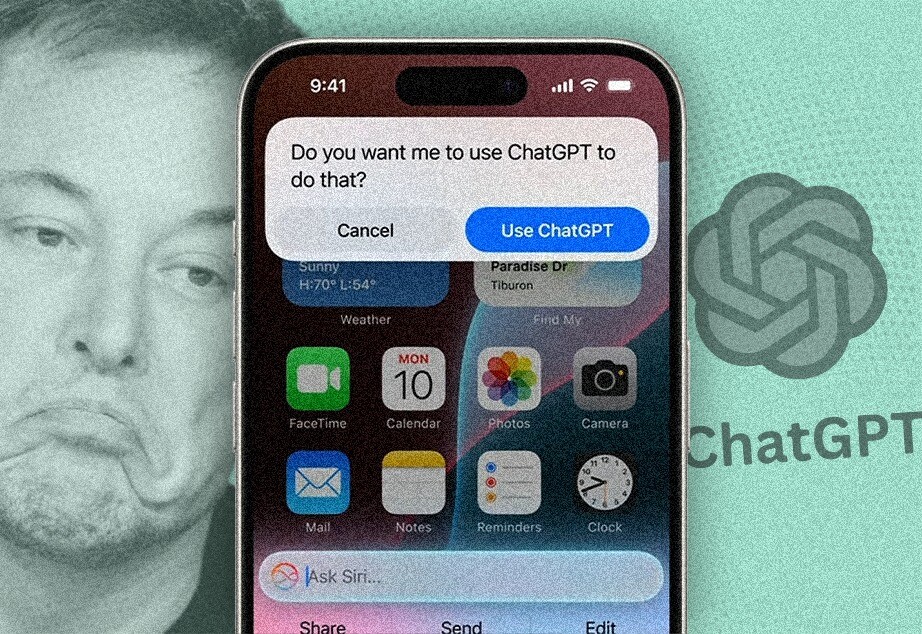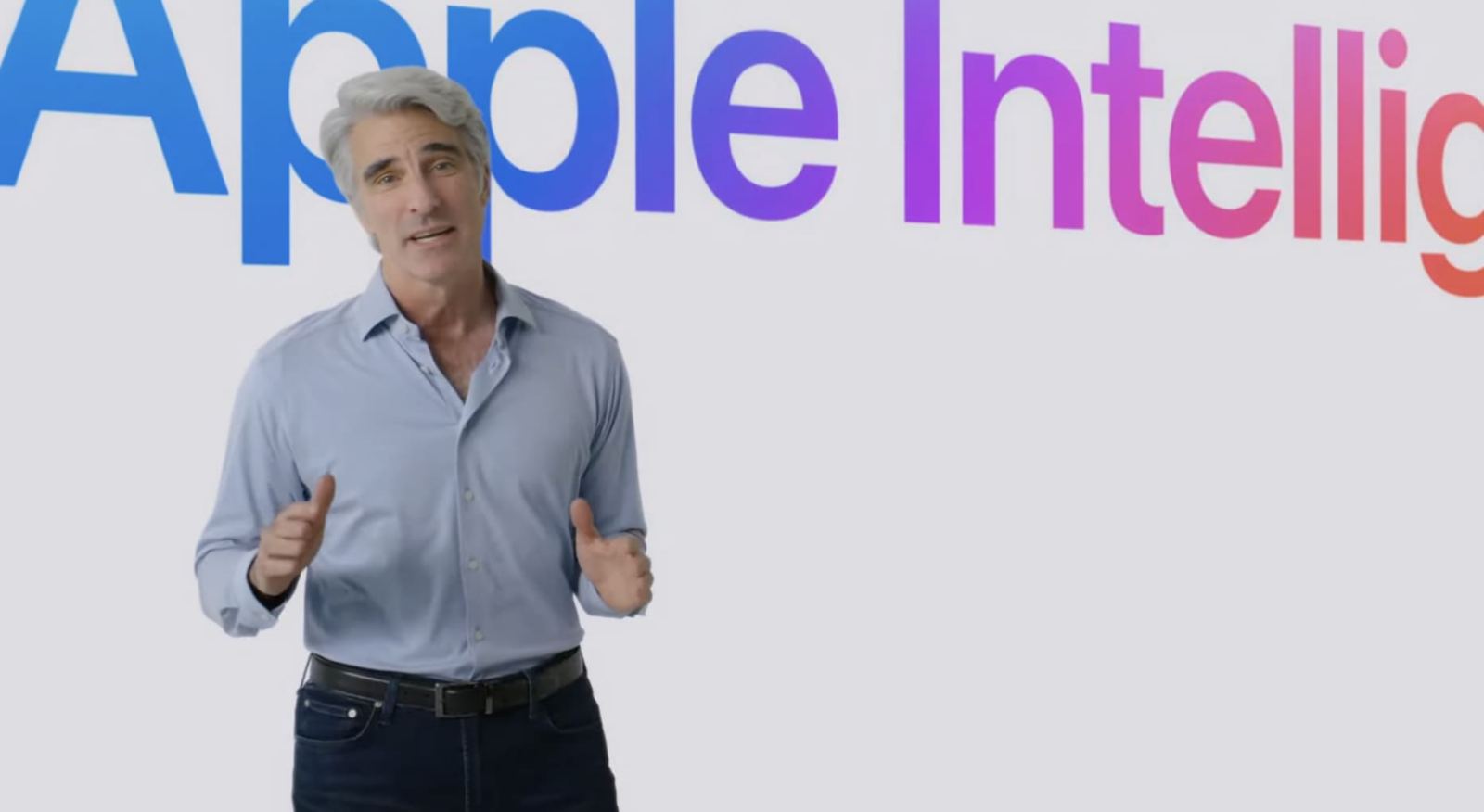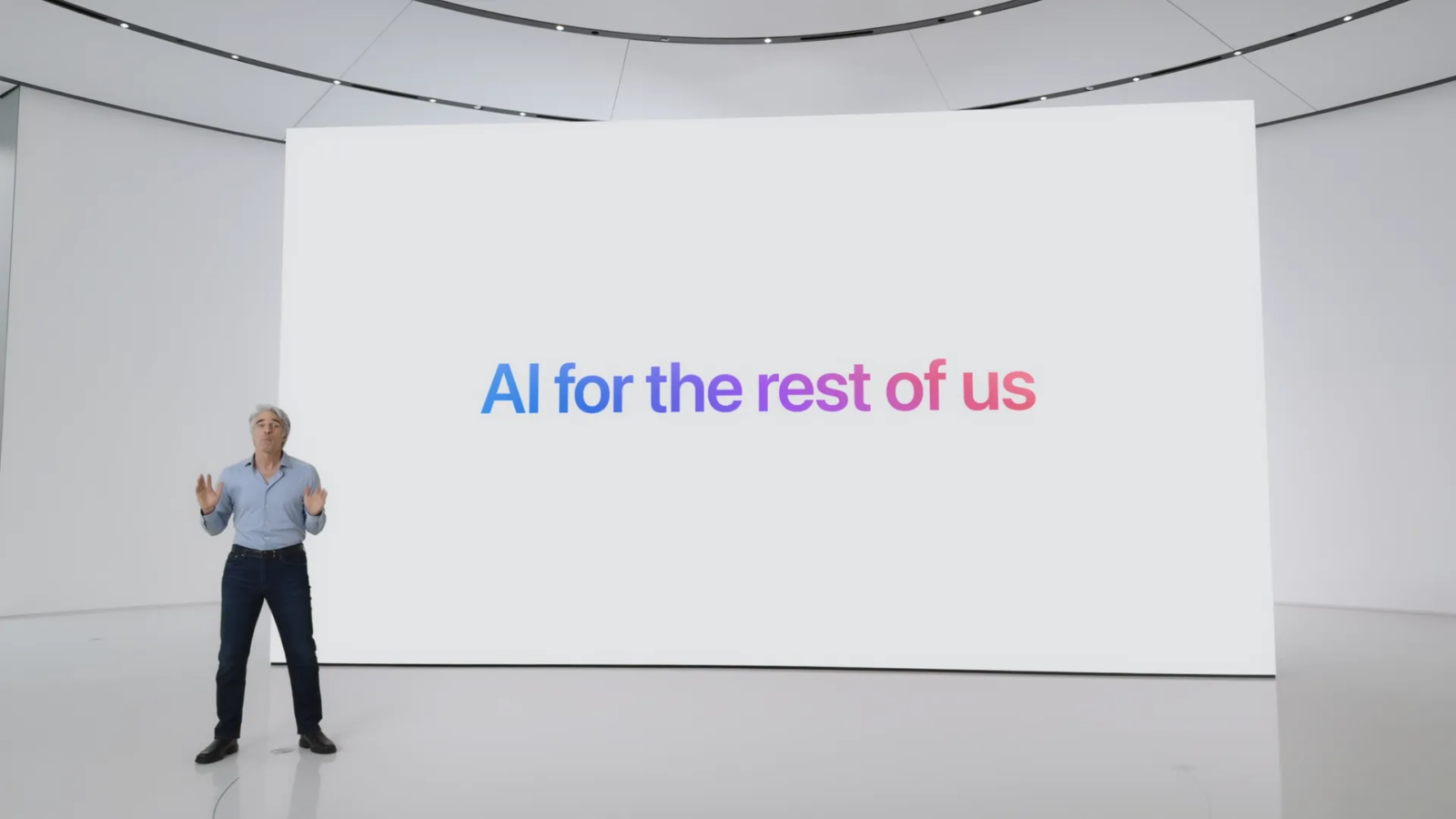Hey Siri, what’s Elon’s problem with ‘Apple Intelligence?’

At the annual Worldwide Developers Conference (WWDC24), Apple unveiled its latest artificial intelligence strategy, integrating the new Apple Intelligence technology across its apps, including Siri, and introducing OpenAI’s ChatGPT to its devices.
Updates to its iPhone and Mac operating systems will allow access to ChatGPT through a partnership with developer OpenAI, making AI more user-friendly and accessible.
We’re excited to partner with Apple to bring ChatGPT to their users in a new way. Apple shares our commitment to safety and innovation, and this partnership aligns with OpenAI’s mission to make advanced AI accessible to everyone. Together with Apple, we’re making it easier for people to benefit from what AI can offer.
Sam Altman, CEO of OpenAI
However, this announcement has sparked privacy concerns, notably from tech billionaire Elon Musk. The owner of Tesla and Twitter/X has threatened to ban iPhones from his companies due to “data security”.
Apple and ChatGPT integration: What does it mean?
The integration within iOS, iPadOS and macOS will allow users to access ChatGPT’s capabilities including image and document understanding without needing to jump between tools.
Siri will also be able to tap into ChatGPT’s intelligence when helpful. Apple users will be asked before any questions are sent to ChatGPT, along with any documents or photos, and Siri will then present the answer directly.



ChatGPT will also be available in Apple’s systemwide Writing Tools to help users generate content. Users can also tap into ChatGPT image tools to generate images.
Apple said its customers will have free access to ChatGPT without needing to create an account, while subscribers to OpenAI’s paid service will have access to a wider range of features.
Elon Musk’s opposition: Why is he protesting?
Elon Musk has been vocal about his disapproval of Apple’s plan to integrate OpenAI technology. Musk feels that OpenAI will use its shady practices and try to source your data behind Apple’s back.
He has even threatened to ban Apple devices at his companies – Neuralink, SpaceX, Tesla, The Boring Company, and X – if Apple proceeds with its integration plans.
Musk expressed his concerns on the social media platform X, stating that visitors to his companies will need to check their Apple devices at security, where they will be stored in a Faraday cage to prevent any data transmission.
Smartphone maker Samsung also mocked its rival’s announcement, yet it is not the first time the South Korean company has sought to undermine its competitor.
Elon Musk vs Sam Altman
Musk’s opposition is rooted in his mistrust of OpenAI’s practices. He fears that OpenAI might use unethical methods to source data from users, despite Apple’s assurances of privacy.
Musk’s antagonism towards OpenAI is not new; his longstanding conflict with OpenAI has been evident in his public statements and criticism of both the organization and its CEO Sam Altman.

Musk co-founded the company in 2015 but later sued it and Altman, in March, accusing them of straying from the original mission of developing AI for the benefit of humanity. Musk has since founded his own startup, xAI, to create an alternative to OpenAI’s ChatGPT.
Privacy concerns: Can it be free and safe at the same time?
The integration of ChatGPT into Apple devices raises significant privacy concerns, particularly around whether this advanced AI can truly be free and safe for users.
Critics worried that OpenAI might access vast amounts of data from iPhone users to enhance their AI models and pursue Artificial General Intelligence (AGI).
It is argued that OpenAI has a history of making substantial changes to optimize data collection, such as with the sudden introduction of GPT-2. Their recent release of GPT-4o, featuring voice and image interactions offered for free, is seen as a strategy to collect more user data. Leaks have indicated that OpenAI delayed GPT-5 to focus on data collection, aligning with their AGI goals.

Apple attempts to address privacy concerns with its “Private Cloud Compute” (PCC) system, ensuring that data processed in the cloud remains secure. They promise that interactions with ChatGPT will not be stored by OpenAI, and user IP addresses will be obscured. Despite these assurances, skepticism remains about whether powerful AI can be free without compromising user privacy.
Apple’s security measures
To address privacy issues, Apple is using its own hardware and chips to process data on-device. Apple insists that any interaction with ChatGPT through Siri or Writing Tools will not be stored by OpenAI, and user IP addresses will be hidden.
Privacy protections are built in when accessing ChatGPT within Siri and Writing Tools — requests are not stored by OpenAI, and users’ IP addresses are obscured. Users can also choose to connect their ChatGPT account, which means their data preferences will apply under ChatGPT’s policies
Sam Altman, CEO of OpenAI
Apple claims to prioritize user privacy with the PCC system, designed to keep personal data secure, even in the cloud. Siri will seek user consent before sending any data to ChatGPT, maintaining transparency and control over personal information.

For the first time ever, Private Cloud Compute extends the industry-leading security and privacy of Apple devices into the cloud, making sure that personal user data sent to PCC isn’t accessible to anyone other than the user — not even to Apple
“Our unique approach combines generative AI with a user’s personal context to deliver truly helpful intelligence and it can access that information in a completely private and secure way to help users do the things that matter most to them
Apple CEO Tim Cook
This approach is meant to keep user data secure by limiting how much information is sent to the cloud. However, some tasks will still be cloud-processed, especially when involving third-party AI models.

Not AI, it’s Apple Intelligence
Despite this, Apple is not abandoning all of its own AI initiatives.
Apple is not just leaning on third-party AI; it’s also developing its own AI solutions under the “Apple Intelligence” brand. Apple Intelligence will integrate into Apple’s apps to provide personalized and secure AI-driven assistance.
These tools aim to handle various tasks locally on the device, using a local AI model and local chips, providing for a higher level of privacy than most cloud-based AI offerings.

Who is ‘the rest of us’?
When Apple launched its AI initiative, it branded it as “AI for the rest of us.” But who exactly is “the rest of us”?
A study from June 2024 sheds some light on this. According to the research, only 23% of adults in the U.S. had tried ChatGPT, and many of them stopped using it after an initial trial. This indicates that less than a quarter of the adult population engages with the technology regularly.
In contrast, Apple users showed a much higher engagement rate with AI tools. The study found that three out of four Apple users had utilized ChatGPT, highlighting a significant difference in adoption rates compared to the general population. This suggests that Apple’s integration of ChatGPT aims to target its loyal user base, who are more inclined to adopt new technologies.



